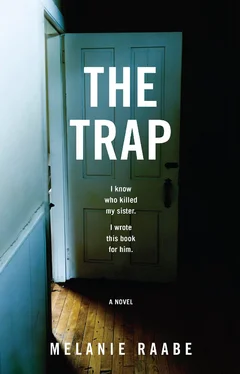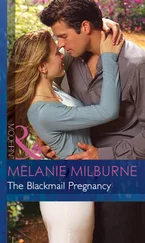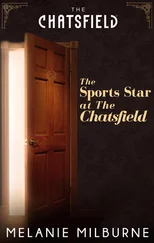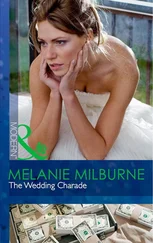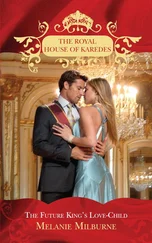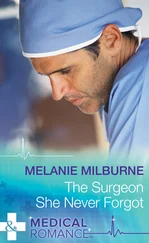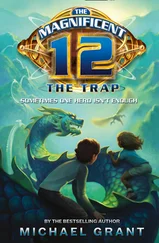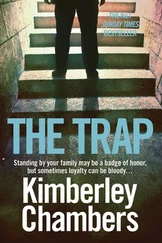A smile steals onto my lips. I am standing at the edge of the meadow. There’s nothing left of my fear. I set off again. I step out into Van Gogh’s starry night. I look about me; the stars make streaks and the moon is a smudge in the viscous, gleaming night sky.
I think to myself that the night is not just mysterious and poetic and beautiful.
It is also dark and frightening. Like me.
After Anna’s death, everything was too much for me. The looks, the questions, the voices, the lights, the noise, the speed — and the panic attacks, which at first only struck when I saw a knife or heard a certain song but were soon triggered by all sorts of things. A passerby wearing Anna’s perfume, bloody meat on display in a butcher’s window — pretty much anything. That glare in my head, the pain behind my eyeballs, that keen, red feeling. And no control.
It did me good to stay at home for a while: to be alone, getting some peace and quiet, writing a new book. Getting up in the morning, working, eating, working some more, sleeping. Making up stories where nobody had to die. Living in a world in which there was no danger.
People think it’s hard not to leave your house for over a decade. They think it’s easy to go out. And they’re right; it is easy to go out. But it’s also easy not to go out. A few days soon become a few weeks; a few weeks become months and years. That sounds like an immensely long time. But it’s only ever one more day strung on to those that have gone before.
At first, nobody noticed I’d stopped leaving the house. Linda was around; she made phone calls and wrote emails, and when do we actually find time to see each other, we all have such an awful lot to do. But at some point my publishers asked whether I wanted to give a few readings again, and I said no. Friends were married or buried and I was asked to the weddings and funerals, and I said no. I won prizes and was invited to the award ceremonies, and I said no.
In the end, people caught on. When the rumors about a mysterious illness started, I was thrilled. Until then, I had tried to overcome my fear; I had stood and battled with myself at the front door, willing myself across the threshold and failing miserably.
But this wonderful illness, invented and spread about by some big, lying daily paper, released me from all that. The invitations ceased. Suddenly I was no longer rude and antisocial but, at worst, to be pitied — and at best, brave. The whole thing was even a boon to my literary career. Linda Conrads, the author with the mysterious illness, who lived cut off from society, sold better than the flesh-and-blood Linda Conrads, who shook your hand and talked to you at readings. So I never denied the rumors. Why should I? I certainly wasn’t interested in talking about my panic attacks.
Now I have the feeling I am being drawn into a book of fairy tales that I haven’t looked at for eleven years. I’m sitting in a taxi, speeding through the night, my head against the window and my eyes drinking in the world as it flashes by.
I look up. The night sky is an inky black curtain with pink clouds drifting past it like acrobats. Every now and then, stars sparkle. The real world is so much more magical, so much more incredible than I remembered it. I feel dizzy when I think of the almost infinite possibilities it offers me.
It’s almost more than I can bear — the wild, restless feeling that spreads through my chest when it becomes clear in my mind: I am free.
It is dark, but the lights and the oncoming cars, the speed and the movement and the life around me are mesmerizing. We’re coming into town; the traffic’s growing heavier and the streets are filling up, even though it is late. I am on safari, watching the passersby as if they were exotic animals; as if I’d never seen anything like it in my life. Here is a mother and her young; she carries the creature strapped to her belly, its plump legs idly kicking. There is an elderly couple holding hands; they make me think of my parents and I swiftly avert my gaze. Over there, a horde of animals — five, no, six of them — are walking along the pavement, heads bowed, eyes fixed on the mobile phones that they’re tapping away at distractedly. These teenagers filling the streets were still toddlers when I was last here.
I recognize the town, and at the same time I don’t. I knew there was nothing left but chains — supermarket and discount-store and fast-food and coffee-shop and bookshop chains. I read the papers; I know things like that. But I hadn’t seen them with my own eyes.
The taxi stops with a jolt and I give a start. We’re in a quiet residential area on the edge of town — pretty little houses, well-kept front gardens, bicycles. If it were Sunday, I’d be able to glimpse the last minutes of a crime series through most of the living-room windows.
“We’re there,” the driver says drily. “That’s twenty-six twenty.”
I pull a bundle of notes out of my trouser pocket. I’m not used to handling cash; I’ve done all my shopping online for so long. I find a twenty euro note and a tenner and relish the feel of real money. I give the notes to the man and tell him: “Keep the change.”
I’d like to stay sitting here a bit longer and delay things, but I know I’ve already gone too far tonight to turn back.
I open the door of the car. I ignore the impulse to shut it again straightaway. I ignore the pain in my head and pulling myself together, I get out and stumble to the door of number eleven, which looks exactly the same as number nine and number thirteen. I ignore the feelings that well up inside me at the familiar crunch of my footsteps on the gravel path. I trigger the motion detector and jump when a lamp lights up the path and announces my arrival. I see movement behind the curtains and hold back a curse; I’d like to have had the time to collect myself.
I climb the three steps to the front door, put my finger on the bell, and even before I can push it, the door swings open.
“Linda,” the man says.
“Dad,” I say.
My mother appears behind him — roughly five foot three of shock. My parents stand in the door and stare. Then, both at the same time, they come out of their stupor and clasp me to them, and all three of us are locked in one big hug. My relief tastes of the sweet cherries in our garden — of sorrel and daisies and all the smells of my childhood.
A little while later, we’re in the front room drinking tea, my parents sitting next to one another on the sofa, and me opposite them in my favorite armchair. The way to this armchair led along a hall covered in photographs from my childhood and teenage years — Linda and Anna camping, Linda and Anna at a sleepover, Linda and Anna at Christmas, Linda and Anna at Mardi Gras. I tried not to look.
Out of the corner of my eye, I can see the flicker of the TV that my mother switched on as a kind of displacement activity. I have tried to explain to my parents how it’s possible that I’m here, suddenly leaving the house again. I’ve told them that I’m better and have something important to deal with and, surprisingly, that seemed to satisfy them for the time being. Now we’re sitting here. We look at each other shyly; we have so much to talk about that we don’t know what to say.
On the coffee table are sandwiches that my mother rustled up. She still feels the need to feed me. I’m in a daze; it’s all far too surreal — the woodchip, the cuckoo clock, the carpet, the family photos, the familiar smells — incredible. And incredible that I’m here at all.
I cast a stolen glance at my parents. They have aged in different ways. My mother looks almost the same — perhaps a little more delicate than she used to be, but otherwise not much changed. She is short, thin, sensibly dressed, her trim, old-fashioned hairdo newly dyed a reddish brown. Dad, on the other hand, has grown old. All those years. The left corner of his mouth droops limply. His hands tremble and he tries to hide it.
Читать дальше
